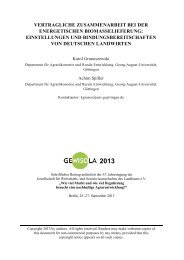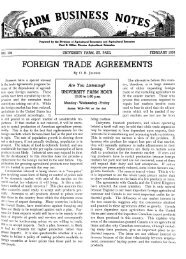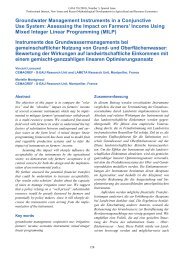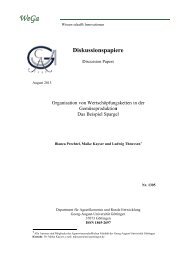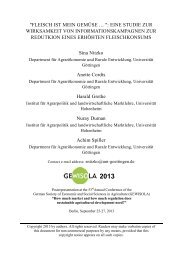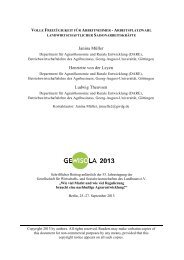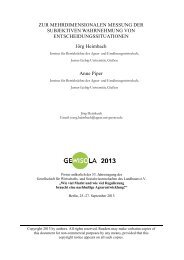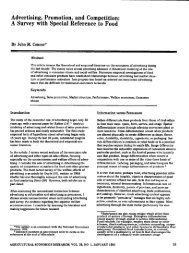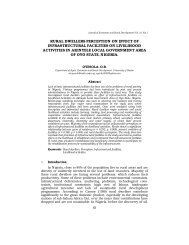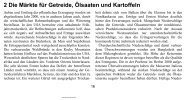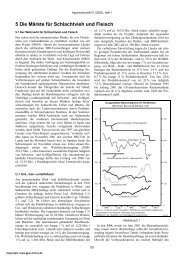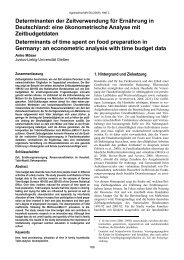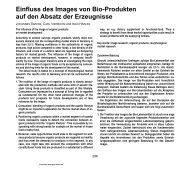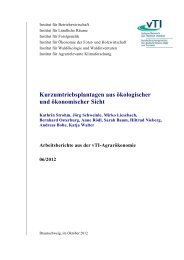District Institutes of Education and Training - Teacher Education
District Institutes of Education and Training - Teacher Education
District Institutes of Education and Training - Teacher Education
Create successful ePaper yourself
Turn your PDF publications into a flip-book with our unique Google optimized e-Paper software.
<strong>District</strong> <strong>Institutes</strong> <strong>of</strong> <strong>Education</strong> <strong>and</strong> <strong>Training</strong>: A Comparative Study in Three Indian States<br />
limited in practice. Student teachers do not believe that they will anyway put into<br />
practice what they have learned, <strong>and</strong> feel they most likely to imitate the models <strong>of</strong><br />
their own teachers regardless <strong>of</strong> their training:<br />
S1 It does not happen in the way we are trained here, or the way we teach in<br />
practice teaching, it does not happen that way in the field. The way they<br />
are giving us training in different skills nobody uses them there. They teach<br />
their own way.<br />
NN Why?<br />
S4 They get conditioned like other teachers <strong>and</strong>…<br />
S2 When they go there they think – we will get the salary anyhow.<br />
S3 The main problem is the mentality. Our teachers used to teach us in one<br />
way. For twelve years, we watched our teachers teach us in the old method.<br />
Sometimes teaching, sometimes not - then we will learn more from those<br />
twelve years than these two years <strong>of</strong> our training. We have been<br />
conditioned like that. Whether we want to or not we will just use that<br />
(RAJ/UDR/1st yr sts).<br />
Here we are forced to prepare a lesson plan. In the classroom we cannot go<br />
beyond the lesson plan. I do not feel that lesson plan preparation is feasible in<br />
practice (MP/I/ 2nd yr st 26.12.99).<br />
Box 4.4: Learning to be a teacher: practice lesson by a second year trainee to year 6<br />
students, SNT 5.9.00<br />
T today we have to learn the lesson <strong>of</strong> ‘Talwar no varasdar’.<br />
[He writes the lesson name <strong>and</strong> date on the blackboard: Subject: Gujarati; Sub-subject:<br />
Talwar no varasdaar]<br />
There are 20 students. 8 boys <strong>and</strong> 12 girls. They take out their textbooks.<br />
T I am reading a poem. You listen. It is a long poem but we will read it.<br />
3:16 He opens <strong>and</strong> reads out the whole poem. Children are looking at the book, some<br />
are looking around. 3 boys do not have textbooks so they are sharing with the<br />
neighbour. The poem was quite long.<br />
[It is in a Kathiawadi dialect]. He reads out the whole poem. After this….<br />
T what do you mean by sits <strong>and</strong> watches?<br />
T [He answers himself ] it means watching while resting.<br />
He begins to read every line again <strong>and</strong> explain the meaning <strong>of</strong> the words.<br />
T ‘mara bapu ne be-be kuvaria’ means two brothers. ‘be-be ne padia bhag’ means<br />
dividing between two brothers.<br />
He explains all the sentences, giving synonyms <strong>of</strong> difficult words <strong>and</strong> writing them the<br />
board.<br />
3:23 Few students are listening to him or paying attention to what he is saying. Some<br />
are are writing synonyms from the textbooks, some are talking, some are turning<br />
DFID 81



